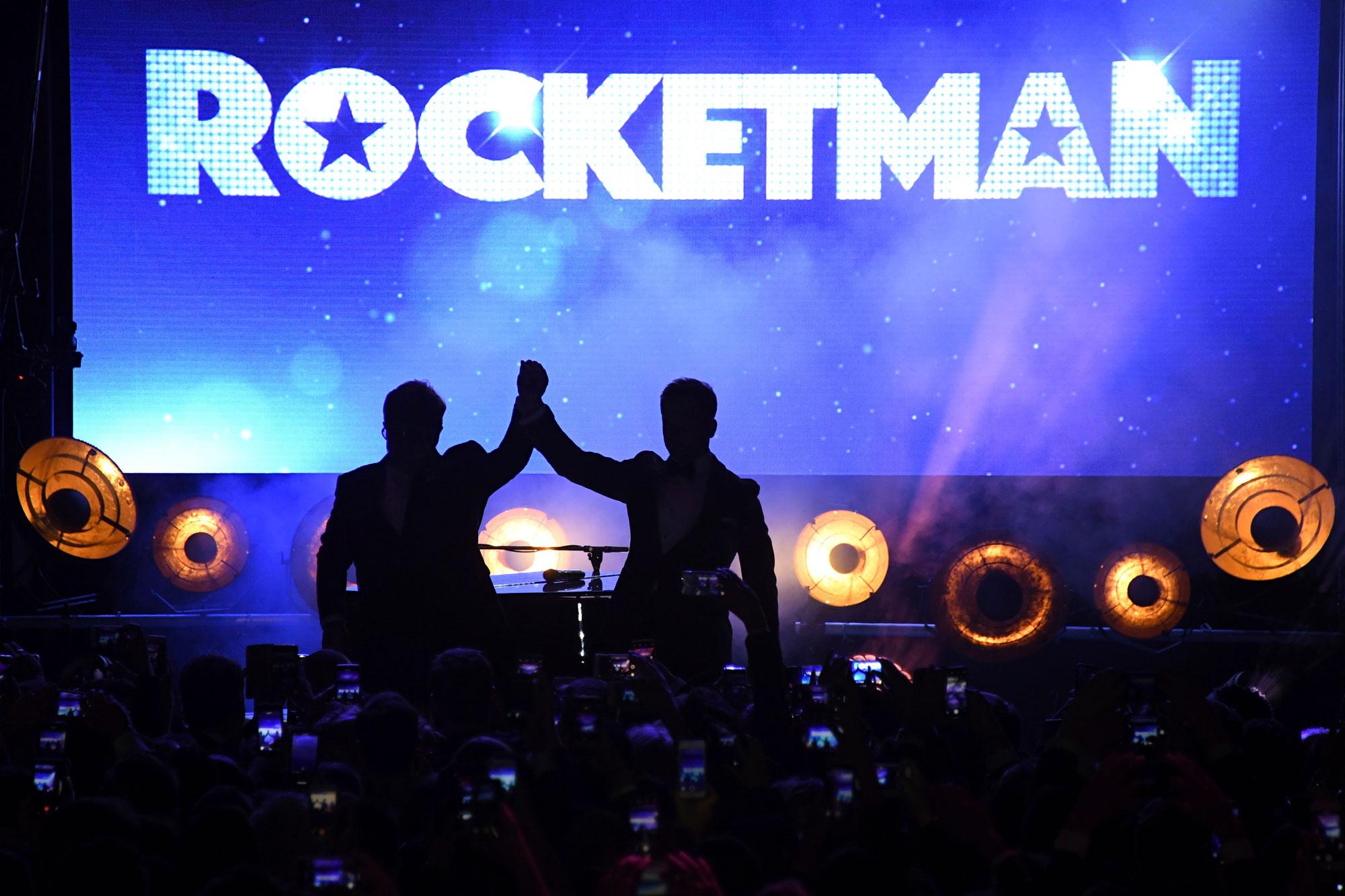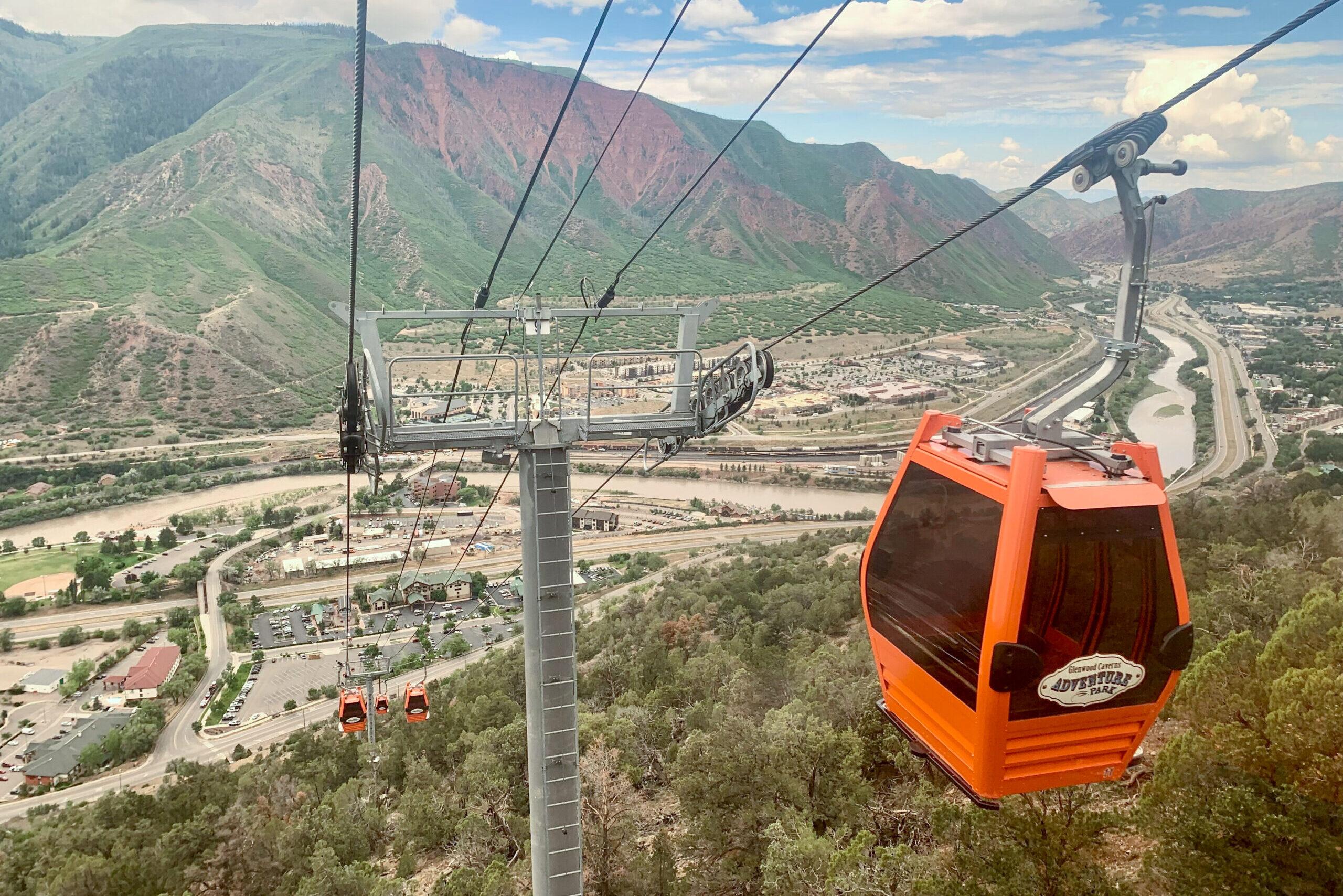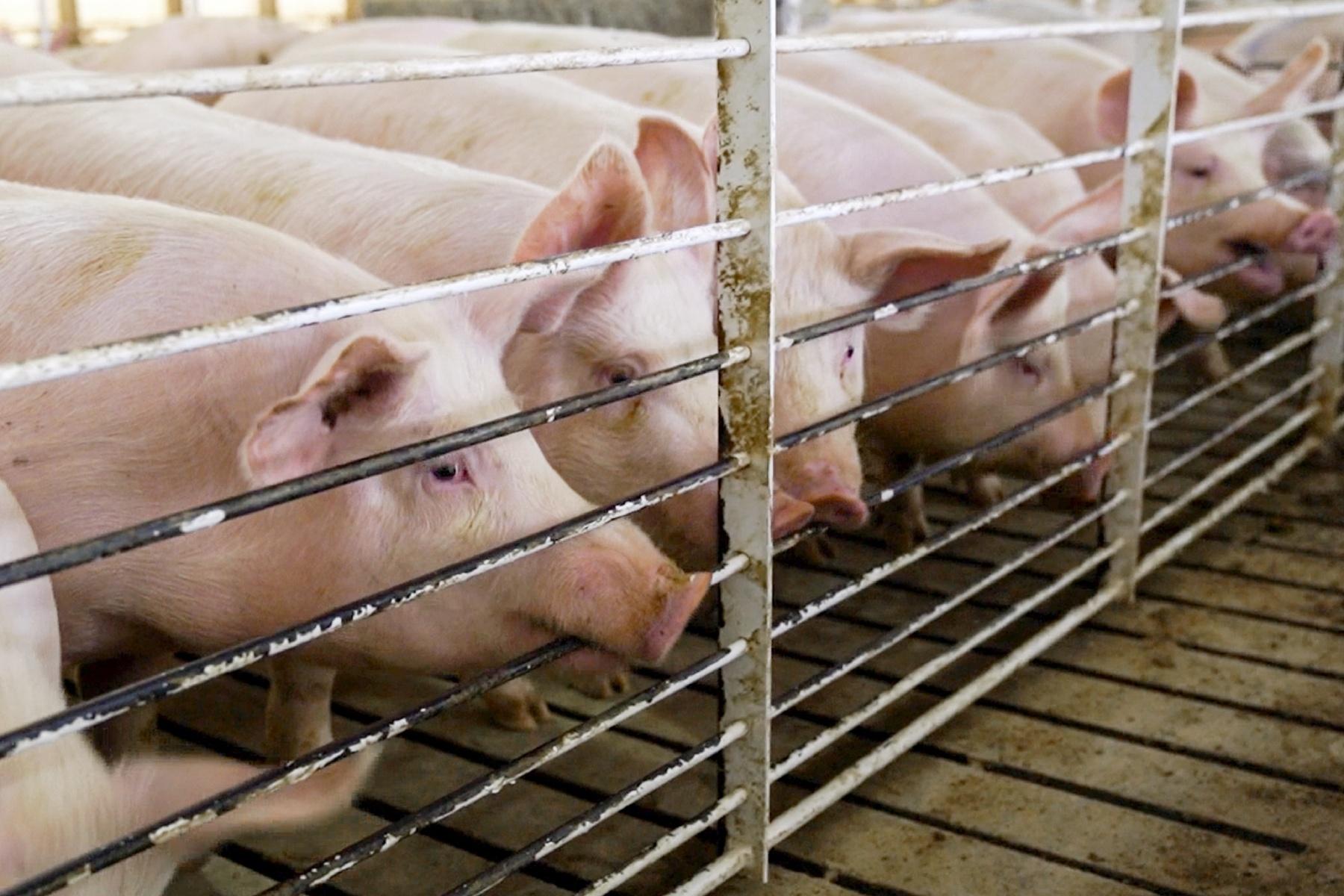

I don’t know anything about being a famous rock star or having millions of dollars, or writing songs that people sing in the shower or perform at weddings or anything like that. But there were moments in the Elton John biopic “Rocketman” where I was him. And I often wept because of it.
One scene in particular moved me to tears. John, who had been abusing cocaine and alcohol for years, was alone in his house, chugging booze and snorting fat rails of white powder. He was muttering nonsensically to himself while pacing around the room.
The man who wrote “Your Song," as timeless and delicate a love ballad as there ever has been, now reduced to a lonely, paranoid, angry junkie.
To be sure, there’s a lot of fun singing and dancing going on in “Rocketman,” and the costumes and the campiness are a hoot. But what stands out for me is its brutally honest look at how addiction can take down anyone — even a multi-millionaire superstar like Sir Elton John. His story is the same as mine, and of millions of others who have suffered from addiction. And it’s one that can help people understand the torment of those who struggle with substance abuse.
I know a little something about the depravity and isolation of cocaine addiction.
For two decades, I drank hard booze and did hard drugs just about every day. I was indiscriminate in my intake, but cocaine – first powder, then crack – was my longtime drug of choice.
It was fun for a while. I mean, that’s why we take drugs, right? Because they’re fun! But in the years leading up to my recovery in 2015, my drug use drove me into deep isolation. I would be a charismatic chatterbox during happy hour, but when I wanted to get high, I was done with you. I would adjourn to an empty apartment, close the curtains, and snort blow or smoke crack alone, often until the sun came up. Just like John.
And when you’re fueling yourself with booze and blow every day, you’re not at your best spiritually. In the movie, John is often a mess. The film does not shy away from the wreckage he created through years of selfish, childlike outbursts and drug-fueled maniacal highs and lows. It reminded me of the times I would blow up in public or at work, often strung-out and sensitive to the slightest provocation. I argued with cops and started fights at sporting events with Chiefs and Lakers fans. Everything was a battle. It was exhausting.
John’s pain came from growing up in an unloving family. Like John, the roots of my addiction started long before I ever used drugs. I grew up in a warm and close-knit household in Longmont, but we were often very poor. My dad would give you the shirt off his back, but he was also often a heavy, miserable drinker. He’s been sober since 2003 and we have a wonderful relationship these days, but it was really difficult at the time.
On top of that, I knew I was gay at a very young age. That was hell. This was the ‘80s and ‘90s, so society had yet to evolve on acceptance of LGTBQ lifestyles. (In some ways and in some regions, it still hasn’t.) And when you’re a closeted gay kid, there’s nothing worse than the fear of being outed, or the despair that comes with feeling all alone.
And when you’re scared, you create defense mechanisms. For me, those often resulted in outbursts. I was kicked out of almost every class I stepped foot in for blowing up at teachers. I barely graduated high school. It’s no wonder guys like me and John find relief at the bottom of a glass or in a pile of cocaine.
But there’s hope. We can recover. The best scenes in the movie come in the end, when Elton strips away his outrageous costumes, and is now sitting in a recovery circle, baring his soul in a pedestrian jumpsuit. He’s even seen mopping the floors of his rehab center. That’s how recovery starts. We allow ourselves to be vulnerable and trade in our egos for some humility.
Colorado Public Radio and Vic Vela are developing a podcast about recovery. Vic will talk to people about their highest highs, their darkest moments and what it takes to make a comeback. Share your email below to stay updated about the show.
And it’s only in recovery where we can finally be true to ourselves. We spend so much time lying and manipulating to feed our addiction, that we don’t even know what the truth is anymore. When John tells his longtime lyricist and friend Bernie Taupin that he’s scared of living a sober life, Taupin suggests that what he’s actually scared of is to “feel” again. That’s so true. Addicts spend a lot of time self-medicating their problems, in hopes of never having to actually feel any pain. But in recovery, we’re forced to face our demons head on, without the luxury of intoxication. That’s an incredibly brave thing to do.
John’s tantrums dominate the second half of “Rocketman.” And when he checks into rehab, he’s defensive, wondering “how long is this gonna take?” In recovery, like him, I had to learn how to behave for the first time. Because I was in constant damage control from childhood through years of addiction, I never learned how to self-regulate emotions like normal people. I lived a life of drama and trauma – crying in the principal’s office, getting beaten up by a drug dealer, being diagnosed with HIV. So my brain never got a chance to develop skills that are needed in everyday relationships. I often say about recovery that it’s very much like being in kindergarten again, learning what’s right and wrong.
Throughout the movie, the camera often zooms in on John’s face. It’s one full of pain and sadness. He knows the life he’s living isn’t good, but he knows no other way to live. I know that feeling. It’s such a horrible feeling.
But we can’t look away. Because in “Rocketman,” we see our sons and daughters, our partners, our friends. Everyone we love who has struggled with this disease … for a long, long time.
Vic Vela is the weekend host for CPR News. He has been sober since 2015.









